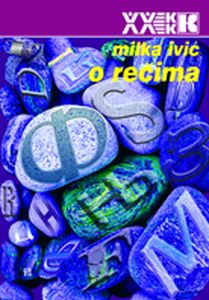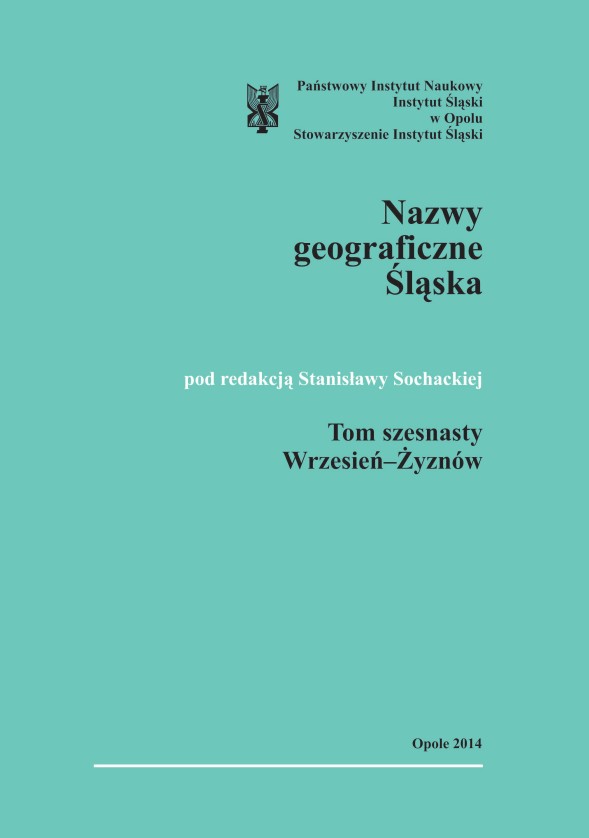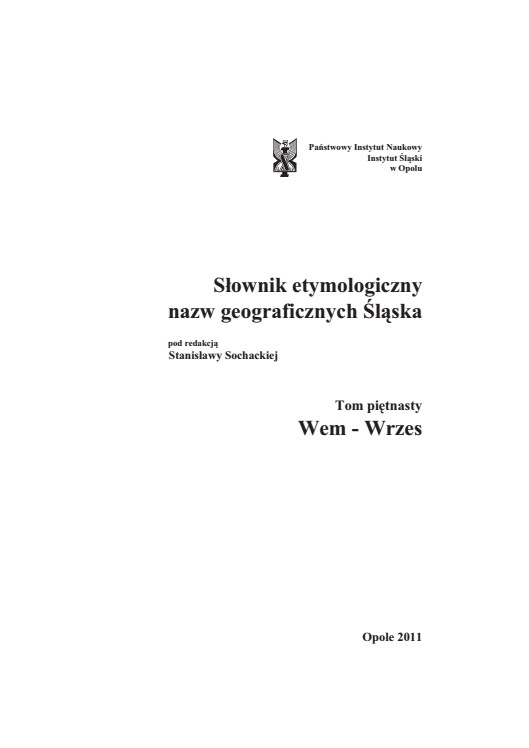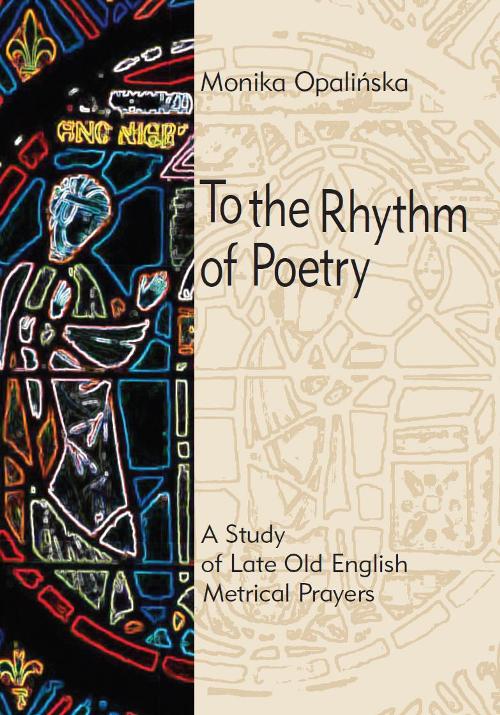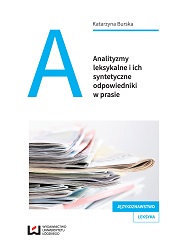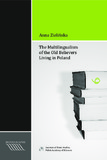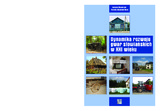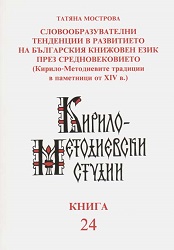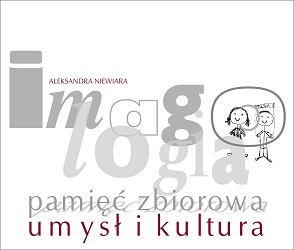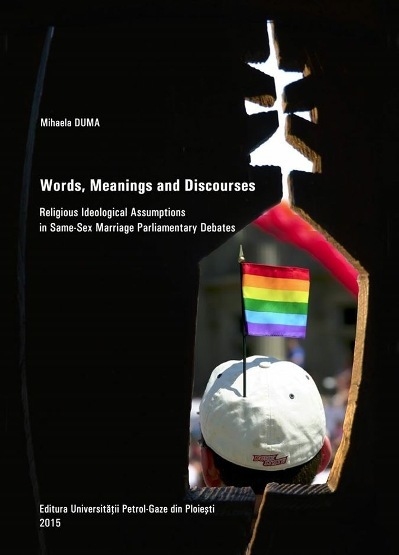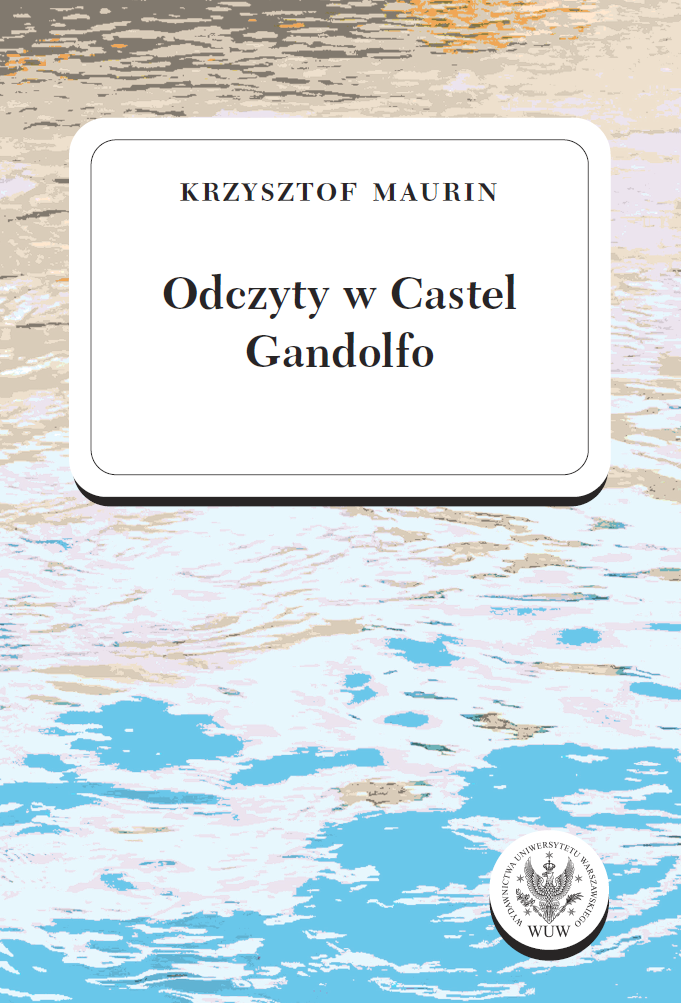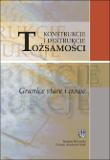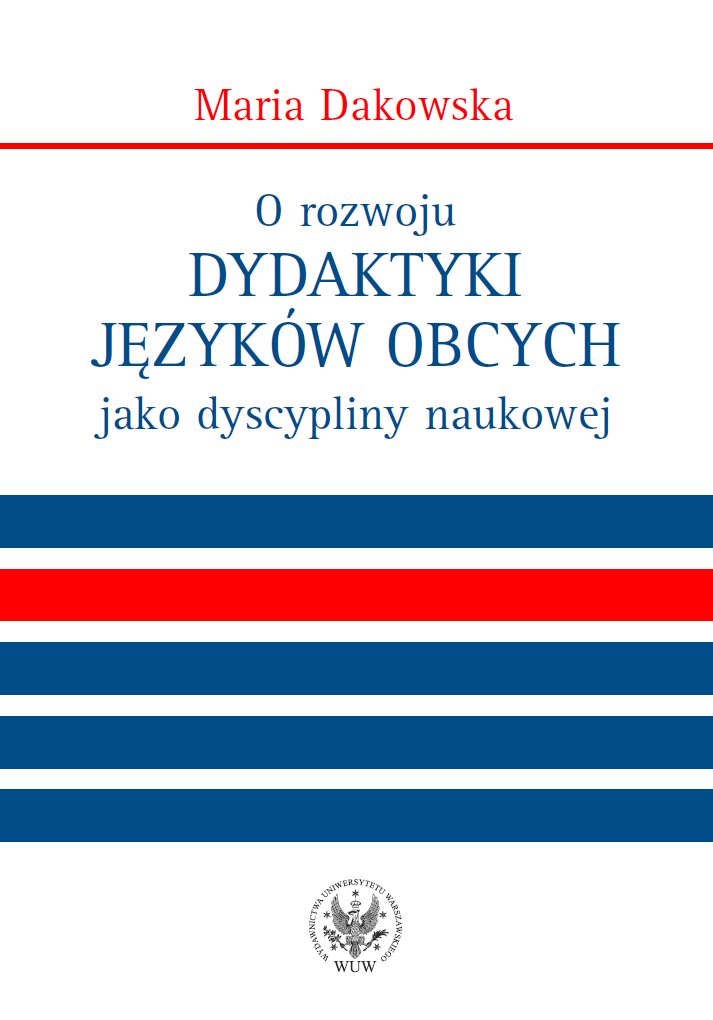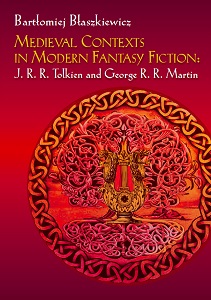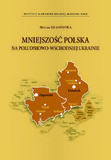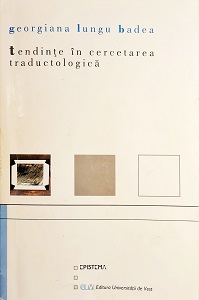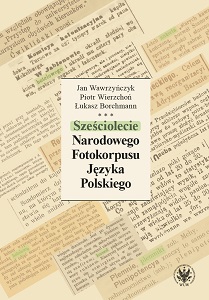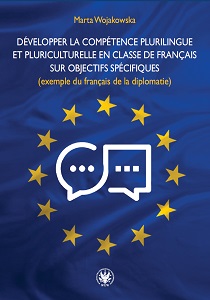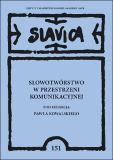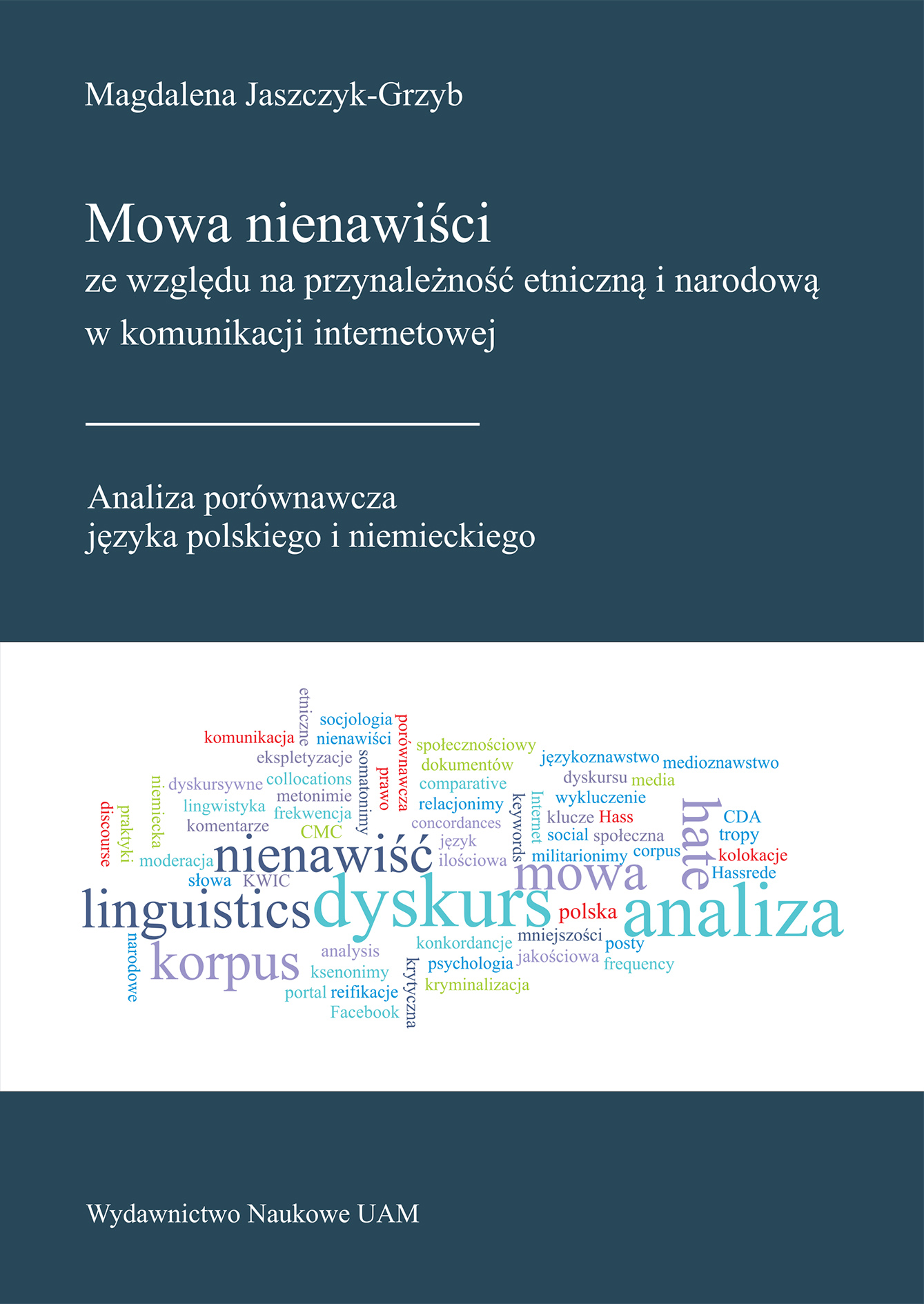Author(s): Aleksandra Niewiara / Language(s): Polish
The book touches on themes from the area which has been termed as ethnolinguistic imagology. It undertakes a discussion over the nature of collective conceptions of nations (a term coined by a Polish forerunner of imagological research, J.S Bystroń) as cultural conceptualizations, located in individual minds, where – accordingly to the connectionist model – they are simultaneously processed within a connected network of concepts as data collected within, while the problem of their verbal and visual nature is one of the most important subjects of the discussion. The book also considers the issues of evolution, inheritance in culture and attempts to address the workings of the collective memory, including collective remembering and forgetting (thus entering the area of humanist memorology). The dependence of collective conceptions of nations on the environment is demonstrated, and in particular, on political, economic and social experience of community, which leads towards a discussion on the subject of collective identity. The theoretical conclusions are derived from an analysis of the data collected as a result of over 20 year research conducted in the following stages: 1990, 1994, 2012 (fundamental research), 2016, 2017 (supplementary research) in form of associative tests set up to acquire verbal data (on the subject of six nationalities: English, Czech, French, German, Polish, Russian) and visual data (on the subject of sixteen nationalities: American, English, Chinese, French, Spanish, German, Polish, Russian, Scottish, Swedish, Tatar, Turkish, Ukrainian, Cosssack, Italian, Jewish).In the first chapter, entitled Conceptions of nations in the light of cognitive studies on culture, theoretical grounds for the methodology presented in the work are set. The history of European studies on imagology is presented, with a particular attention being paid to the research concerning Slavic cultures. Characterized are the main themes of the ten year discussion over culture as a cognitive phenomenon and theoretical foundations are laid out for own conception, where the imagological perspective attempts to demonstrate the dynamics of the process of conceptualizing other nations, with the presupposition that a given culture’s knowledge is not fixed but undergoes modifications within the frames of the evolution of the entire culture. Relating to appropriate conceptions of the mind, i.e. the connectionist model and the vision of the embodied mind, and also own research concerning the evolution of Polish conceptions of nations over several hundred years, the structure of the cognitive network of conceptions of nation is demonstrated, which originates from grouping ideas into clusters, which are connected with closer and more remote relations and are at the same time some part of a conceptual network of a given culture.In the second chapter, entitled Research and conclusions, basic information about the researched population, the conditions and circumstances of the research and the research methodology is given. The chapter indicates a possibility of evaluation of changes or continuity of cultural conceptions which occur in minds of two successive biological generations at moments important for the community: during the first stage of the Polish system transformation and the so-called breakthrough of 1989/1990 and the second stage during the Euro 1012 soccer championships held in Poland. The specificity of research and the results of association tests, including a test of own design where the task consisted of drawing a person of a given nationality in response to a stimulus were characterized. The principles of correlating the results of verbal and pictorial questionnaires were discussed and presented in form of tables, where the ordering of data reflects the grouping of concepts from the appropriate cognitive domains into clusters of the conceptual network in the human mind (1. Initial taxonomy, 2. Place. Territory, 3. Language. Speech, 4.a. Appearance. Physical qualities, 4b. Appearance. Clothing and armament, 5. Emotions, 6.a. Behaviour in a group. Manners, 6.b. Character and personality, 6.c. Temperament, 6.d. Intellect, 6.e. Ethics, 4.c. Money. Wealth, 8.a. Food, drink, stimulants, 8.b. Artifacts. Technology, 8.c. Culture, 8.d. Sports, 9. Current politics and historical events). The purpose of this part is a presentation of the thematic content of particularconceptions of nations and an indication of some of the trends in their evolution.In chapter three, entitled Discussion, observations which stem from the comparative analysis of results were presented. The part Cognitive domains in construing conceptualizations of nations discusses the processing of data concerning the nations within individual clusters that group concepts from appropriate domains. This allowed for noticing related transformations within the whole network of cultural conceptualizations particular to a researched group, for instance an improvement in conceptualizing a German being parallel with a simultaneous deterioration in conceptualizing Russians or Americans. The symptoms are apparent in the change of clarity of concepts group in individual clusters and which can easily be diagnosed based on the number of associations and reactions to a stimulus. In the part A picture or a word? Conceptions of nations as cognitive representations, the comparison of data from the verbal and pictorial questionnaires demonstrated certain differences in the intensity and quality of processing information (linear or parallel) on the subject of appearance, psyche and emotions, social attitudes; it revealed the fact that pictorial data more quickly register the changes in consciousness of a given group (e.g. concerning the sense of identity and self-stereotype, or the recordings of the most current information in the supplementary research from 2016 and 2017), while verbal ones are more traditional and slower in reflecting the changes. The mutual influence of both codes was also noticed, when a word inspires the design of the picture, e.g. through a suggested association with a strongly rooted phraseology. In parts entitled Memory and identity. Continuity and change – inheritance, the results were compared from the perspective of changes concerning collective memory and reflections were presented over cultural inheritance in cross-generation transmission in a given group, including a broader perspective of Polish culture in its historical development and wide territorial reach. The conclusions concern a gradual decrease in the number of historical associations in successive stages of research, the reduction of elements of cultural and communicative memory, which indicates, among others, a certain cultural evolution which occurred in the studied period and which consists of both the transmission of selected unchanged cultural conceptualizations, and modifications, or even mutations of others (in the process of cultural inheritance). Due to the dependence of these changes on political and economic transformations, both in the local and global environment, we can speak of capturing a certain stage in the evolution of Polish culture in its researched fragment.
More...
